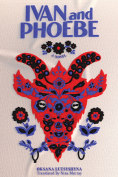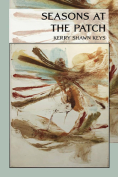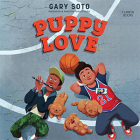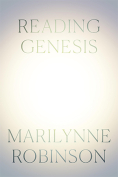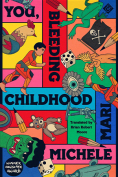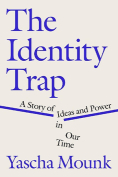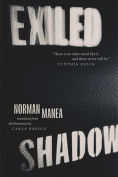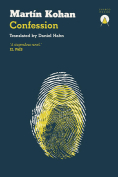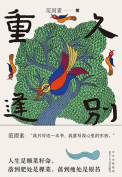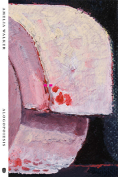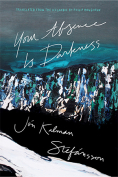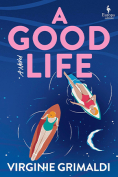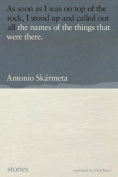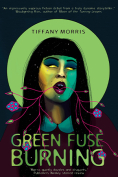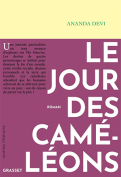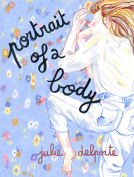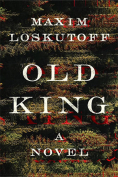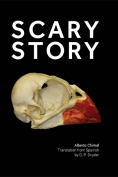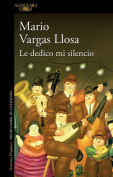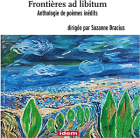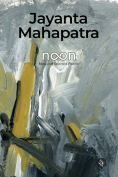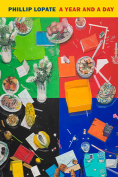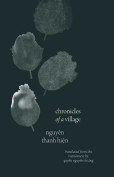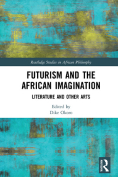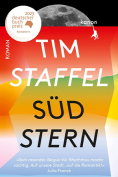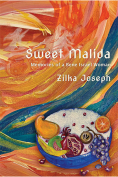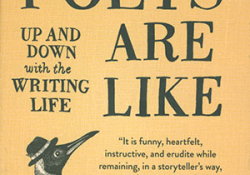Puppy Love by Gary Soto
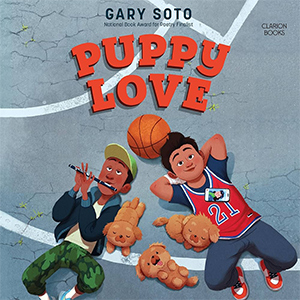 New York. Clarion Books. 2023. 240 pages.
New York. Clarion Books. 2023. 240 pages.
As a career evangelist for cross-reading, that magical practice in which adults allow themselves to gleefully devour books that are supposedly intended “for children,” I always find it a reason to celebrate when Gary Soto publishes another middle-grade or young adult novel. Puppy Love is no exception to the rule established by his more than four decades of genre-spanning writing. Smart, funny, and richly intricate, this narrative of found, lost, and rediscovered love contains multitudes for appreciation by an age-diverse audience of careful readers.
Much of what is beautiful in Puppy Love comes from the loveliness that Soto’s narrator and his barely teenage protagonists observe in the world around them. Benny, one of the abandoned puppies that Jordan Mendoza rescues from a nearby canal and its banks, is not just “cute” but is “a warm, beautiful, living thing.” Soto allows the thirteen-year-old Jordan dreams in which young love mixes with the gorgeousness of the more-than-human: “The surface of the canal was golden with light. Occasionally, a fleet of fallen leaves floated by like unsinkable boats. Two birds quarreled in a faraway tree.” These early moments hint at an anti-anthropocentric vision that increasingly unfolds through Soto’s uses of figurative language, as when Jordan holds “up his hurt paw, still wrapped in gauze” or when his classmates at school lean “like sunflowers” toward the puppy that has snuck, unauthorized, into his bag. In reversing the dynamics of anthropomorphic comparison as a narrative device, Puppy Love deploys a decolonial, transnationally American method of decentering human-exceptionalist thinking that adds texture to the novel’s depictions of “litter patrol” as a nascent form of adolescent environmental activism.
At the same time, Soto’s novel doesn’t limit itself to one strand of politically oriented thought, instead engaging with questions of ethnoracial profiling and criminal (in)justice, linguistic diversity and translanguaging, and resistance to class hierarchies and stereotypes. Interrogated by detectives after leaving his fingerprints on the door handle of a car that had been stolen and abandoned in the canal, Jordan finds himself disbelieved and ridiculed, giving credence to his father’s argument that “they live . . . in a police state.” Translanguaging is a multigenerational phenomenon in Puppy Love, with not just the protagonist’s parents but Jordan and his best friend, Antonio, moving fluidly between English and Spanish. Music becomes a particular locus of class commentary in the novel as Antonio reveals a secret love of the piccolo, and Jordan’s crush, Sierra, agrees to play the glockenspiel for the school’s new pep band, refusing patronizing stereotypes of music education in public schools located in working-class communities. In a playfully intersectional moment of close-third narration, Jordan characterizes the German word glockenspiel as “exotic, like the language of a country that had yet to be invented,” flipping the script that fetishizes non-Western musical cultures as excitingly foreign. Puppy Love also exhibits this same sort of expansiveness in its genre allegiances, as Soto’s novel allows itself simultaneously to draw on conventions of crime fiction and add in “a dash of magical realism”—to quote Soto’s publisher—to its narrative of teenage romance.
Soto has been busy in recent years, with offerings ranging from his You Kiss By th’ Book: New Poems from Shakespeare’s Line (2016) to his one-act play The Afterlife, an adaptation of two earlier novels that was staged by the San Francisco Youth Theatre in 2019. Puppy Love takes its place among these recent works with a keen eye for how youthful romance can intersect with the sociopolitical questions we need to be thinking about in 2024. Yet Soto’s most recent middle-grade novel is also just plain fun to read and to cross-read, for child and adult audiences alike.
Suzanne Manizza Roszak
University of Groningen

